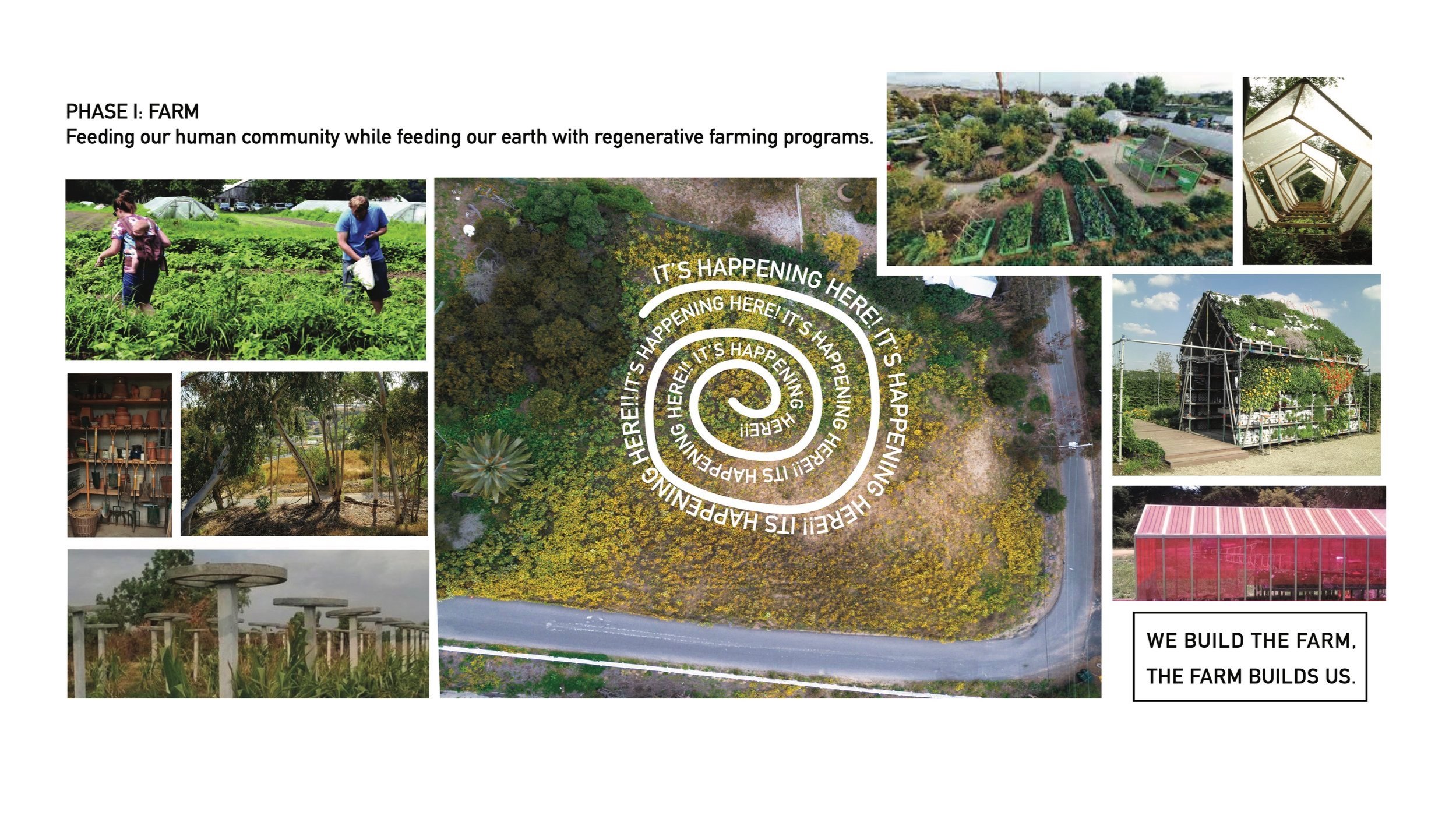
PHASE I: FARM
Feeding our human community while feeding our earth with regenerative programs.
We did it! Water is flowing to our farm!
We're thrilled to announce that we've successfully connected our field to the water supply – a major milestone that moves us from dreaming to doing! With water secured, we're now in the exciting design phase of bringing our vision to life.
We have access to prime farmland in a climate where almost anything grows, and we're ready to transform it into a thriving hub of exotic fruit trees, specialty vegetables, fresh food, youth mentorship, and community connection through our farm stand.
Our proof of concept is already flourishing!
Across the street in a small test space, we're successfully growing mangoes, guavas, bananas, finger limes, sapotes, cherimoyas, avocados, and passionfruit. Now it's time to scale up!
With water access secured, we're implementing regenerative practices – planting cover crops, rotating plantings, and building healthy soil that will support abundant harvests for years to come.
Next steps: We're building the infrastructure for success – fencing, a hoop house, our farm stand, soil amendments, seeds, and trees. (We'd love to share our detailed budget with you – just ask!)
But this farm is about so much more than food
We plan to create an educational environment for youth to engage on a variety of issues, done in the context of nature and agriculture. The goal will be to use the farm setting and associated experience to create workshops around how to best balance social media and technology in their own psychological and social development, and their interactions within the real and tangible world.
We emphasize learning useful life skills to be used throughout one's life, especially ones that feed us. In our teenage soup kitchen, we will cook together, provide food for those who need it, and explore low-impact living, the power of permaculture, and eating well in an "off-the-grid" environment.
Encinitas is 40 miles from the border and is accessible via public transit from other parts of the city. San Diego is 30% Latino. Historically, people of color and marginalized identities have had to carve out radical means of production, community, healing, and food justice. We aim to advance communal alternatives to existing industrial agricultural systems in theory and practice.
